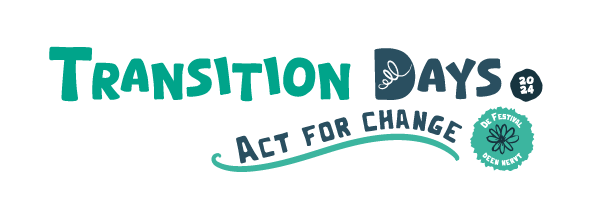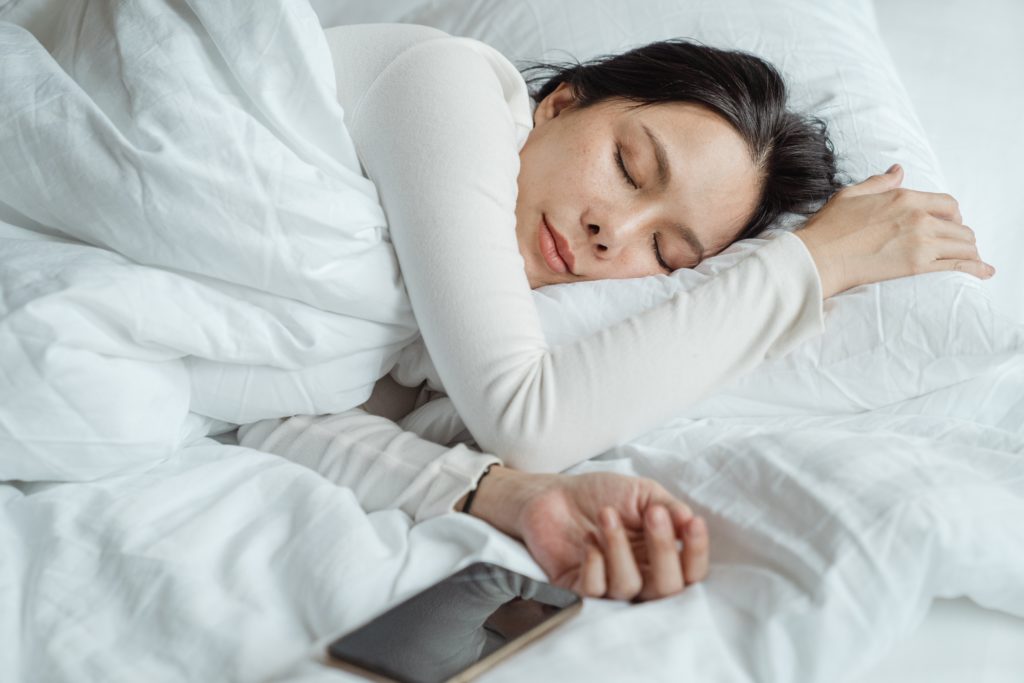The following words have been macerating in my head for many months, ever since I agreed to write an article about the importance of a good night’s sleep for the “Transition Days”, organized by CELL (Centre for Ecological Learning Luxembourg), who attributed the concept of the bedroom as the main theme for January. As I am putting my thoughts to paper, the breathtaking mountains of the Peneda-Gerês National Park of Portugal, my country of birth, are cuddling my heart and soul. This is the place I have chosen to travel to during the end of year holidays to leave 2020 behind and to start 2021 in the most auspicious of places, close to nature and its healing powers.
Initially, many months ago, I had decided to research the hell out of the topic of sleep, in order to provide you with a scientifically sound article, but rather than delivering an academically dry paper, I am taking the liberty of sharing my own personal experiences, based on the readings, tips and tricks, that have shaped my thoughts and actions on the matter. A small disclaimer needs to be communicated here. What I am about to share with you might or might not work for you. No guarantees nor promises of miraculous results are given here, but you can use my experiences as a starting point to explore and concoct your own recipe(s) for a good night’s sleep.
The importance of routines
Until three years ago I was not aware of the positive impacts of integrating morning and evening routines into your daily life. One day, browsing through YouTube’s endless stream of videos that populate my feed, I clicked on Jim Kwik’s “10 Morning Habits Geniuses Use to Jump Start Their Brain” which has accumulated over 5 million views over three years. Not minding the clickbait title, I watched the 5 minute and 28 seconds video and was very impressed by its author. Jim Kwik is a “brain coach” who has worked for over 25 years with a long list of highly recognized super achievers in various fields to enhance their brain performance.
The admirable fact is that Jim had a brain injury at the age of 5, leaving him with serious learning challenges and the inability to read and learn properly. His friends teased him and gave him the nickname “The Broken Brain Boy”. Overcoming this massive disadvantage, Jim made it his life mission to “learning how to learn”, becoming an expert in brain performance, memory improvement, and accelerated learning. Strongly inspired by Jim, I implemented my own morning routine which starts around 06:00 and looks like this:
- Write down your dreams
If I wake up and a dream lingers in my short-term memory, I immediately write it down before it fades into oblivion. Dreams are powerful sources of information and a direct line of communication with your subconscious, which becomes very active when your conscious self goes to sleep. Experts are still not sure about why we dream. Some suggest that dreams exist to help solve problems in our lives and to process emotions. I write down my dreams, when I am able to catch one, in order to make sense of them and if they don’t serve any purpose at all, at least they make up for some good stories, delivered freely by my subconscious. - Make your bed
I have to admit that before getting acquainted with Jim on YouTube, I never made my bed. Why should I have? My logic was that I would mess it up again every night by going to sleep, again and again, so why bother making it look nice in the morning? It so happens that if you start your morning by completing a task successfully, your brain is primed to repeat that process throughout the day. This point was reinforced by Admiral McRaven, in his commencement speech at the University of Texas at Austin in 2014. His speech was titled: “If you want to make a difference in the world, start by making your bed.” I now understand why every soldier is forced to making his/her bed. - Drink a glass of water
Rehydrating your body is an important action to take early in the morning as many of us get dehydrated at night. I’m sure you are well aware of the fact that our body is composed of up to 60% of water, which makes a glass of water very appealing at all times. - Move your body
I am very lucky and grateful to live in the middle of the gorgeous vineyards of the Mosel region, my favorite region of Luxembourg. A quick walk of 15 to 30 minutes around the area gets my heart rate going and wakes my whole body up. As a bonus I get to connect with nature, early morning, when the world is still in quiet mode. When the weather is really dreadful, I do up to half an hour of various yoga exercises at home. - Engage with your breath
One of the most powerful tools I have learned these past years is the Wim Hof Breathing Method (WHBM) in addition to the several breathing techniques (anuloma viloma, kapalabhati…) I have learned through my regular yoga practice. Besides oxygenating your brain and body, being mindful of your breath and breathing patterns can have a huge impact on your health. If I have to recommend you to read a single book this year, let it be “Breath” by James Nestor. This “nose-opening” book has made me aware of the superpowers of my nose and the importance of breathing properly and mindfully. - Embrace meditation
I believe it is not necessary to enumerate the multiple benefits of a daily practice of meditation. Author and podcaster Tim Ferriss in his book “Tools of Titans” realized that a big majority of the world class performers he interviewed engage in a regular practice of meditation and credit this important practice as a vital part of their success. There are different methods of meditation, as well as numerous apps at your disposal, my preferred one being Headspace. You might also want to read Kankyo Tannier’s “The gift of silence”, which presents you with different practices derived from zen meditation. - Start a journal
Another big revelation. Never a big fan of the written word, I now find pleasure in confronting a white page regularly. It does not matter what you write but that you write. Journaling can be an opportunity for positive self-talk or identifying negative thoughts and behaviors. A journal and a regular practice of writing in it can thus have therapeutic benefits when it comes to dealing with overwhelming emotions. - Play with your brain
I taught myself how to play chess because it improves my memory as well as my cognitive abilities while teaching me strategic thinking and concentration to solving problems. Find fun activities that stimulate your brain and bring long term mental benefits. - Prepare your day
I have a preference for being in control of my day rather than having my day control me. In that sense, spending a few minutes every day mindfully thinking about and writing down a list of priorities, as well as a short to-do list, can have a strong impact on the quality of the day ahead. - Good food nourishes the body & soul
I am not going to debate the importance of a good breakfast nor the qualities of intermittent fasting and other tips & tricks that have come to the fore these past years. What works for me is a smoothie composed of different non-dairy milks, my preference being for regional and organic soy milk, fresh dates, blueberries or “brainberries” as Jim Kwik has renamed them, cacao powder, açaí berries powder, banana, hemp and sesame seeds. This might not work for you but what is important is to take nutrition seriously, regardless of the time of the day. Engage with the subject and find what works best for you.
You may be wondering about why I started this article about sleep with morning routines. The reason is simple, Jim Kwik’s YouTube video is what got me interested in finding more about good daily habits. From integrating a morning routine into my life, I quickly moved to thinking about and formulating my own evening routine, which helps me distance myself from the activities of the day and ease me into sleep.
My pre-bed, pro-sleep evening routine
I start my evening routine about an hour before going to bed, which is usually between 23:00 and midnight. It is a simple but important hour-long three-step routine that works for me. You might think about other activities that are better suited for yourself, but in any case, thinking about these matters is an important first step.
- Write, again!
It doesn’t have to be long but taking time to write down the important thoughts and actions of the day helps me relieve stress. I don’t follow any particular method, which you can find plenty online, I simply let my self-reflective thoughts find their way on paper. Being mindful about what made my day, good or bad, helps me switch off my rational mind before engaging in other exercises. - Breathe, again!
My preferred breathing exercise in the evening is the smooth “anuloma villoma” or controlled alternate nostril breathing which I have learned from my many years of practicing yoga. It is a simple yet effective technique that allows me to calm my mind by focusing on my breath. You can research this technique online but in simple terms it involves holding one nostril closed during inhalation, then holding the other nostril closed during exhalation. I add a period of breath retention in between inhalation and exhalation. - Meditate, again!
This is the last, but very powerful exercise that I engage in before letting myself go to sleep. I actually meditate in bed, sitting on my pillow, legs crossed, my back resting on the headboard. By focusing on my breathing and bringing my mind’s attention to the present, I am able to break away from my everyday thoughts and evoke the “relaxation response”, a deep physiological shift in my body that is the opposite of the stress response that I witness in my morning routine. Meditating in bed makes the transition into the horizontal position very smooth and effortless.
As you have seen, these three exercises are taken from my morning routine, the starting point of my interest in integrating mindful practices into my daily life. Not every routine has to be original or complicated and long. Simplicity in the evening works very well for me. Nevertheless, I have faced and still face challenges that often keep me away from engaging in my routines, which very often have a negative impact on my sleep hygiene.
The biggest challenges
In my imperfections as a human being, I sometimes stray away from these routines that are very beneficial every time I practice them. Let me start with the biggest challenge I face on a daily basis.
1. The big black tech hole
Hello, my name is José and I am addicted to my phone. I am only half-joking in writing this sentence. The weekly activity reports of my iPhone usage are not something I am very proud of. On one side I have been able to drastically reduce my use of Facebook and Instagram, but my péché mignon and Achilles’ heel remains YouTube and its powerful artificial intelligence monster that keeps me engaged with the perpetual next video clip. My Netflix consumption has also shot through the roof during lockdown. Being glued to my phone screen is the biggest obstacle to practicing my daily morning and evening routines. Nomophobia, the fear of being without a mobile phone is a real thing.
How do I face this challenge and avoid getting sucked into its magnetic black hole? Ironically, watching Netflix’ documentary “The Social Dilemma” has raised my awareness. One of the biggest goals for this new year is to implement the one-hour rule: not touching my phone anymore for at least one hour before going to bed, hence allowing full space for my evening routine, and not engaging with it at least one hour after waking up. One of the most powerful recommendations that came out of the documentary is to simply turn off notifications on the apps installed on my phone.
This is an ongoing battle between mindfulness and mindlessness that many of us are fighting on a daily basis. Helpful tips on how to gain control over this tech black hole can be found on the website of The Humane Center of Technology (humanetech.com), which was co-founded by Tristan Harris, former design ethicist at Google and main protagonist in “The Social Dilemma”.
2. Stress management: when you are not your priority!
Over the past 20 years I have often prioritized work, leaving not much room for achieving a satisfying work-life-balance. In June I accepted to lead a well-known non-profit organization and my professional strive for instant results and perfection have taken over, again. In the past, this intense work ethic and the lack of focus on my own personal and mental health have led me to experience a few burnouts. I guess I am thick-skulled in learning vital lessons, but it is a game that is lost in the long term.
After the initial lockdown ended, when yoga classes were allowed again, I made it my daily ritual to leave office to attend my 18:30 class. Immediately I saw a shift in my mental clarity as I was able to get rid of stress that I had accumulated throughout my workday. Once yoga classes were not allowed anymore, I continued working until late in the evening.
STOP is a very important mantra that I want to repeat and implement this year. I will stop working, as often as possible, at 18:00 to focus on myself. As much as work is important, my mental and physical health is equally if not more important. In that sense, I have already cleared space at home for a yoga and meditation space, that will motivate me to leave work earlier.
How much does a good night’s sleep cost you?
This is the question I have been pondering for many months now. It takes efforts to think about, research, test, and implement different techniques that work for you. For the past years I have been engaged in the process of “personal development” which has led me to the importance of morning and evening routines. When I mindfully practice what I have preached above, I witness nights of deep sleep and wonderful days, professionally and privately. The cost of having a good night’s sleep is directly correlated to the efforts you put in finding what works and what does not work for you.
The real question to ask is how much does a bad night’s sleep cost you? What happens if you don’t prioritize your physical and mental health? What is the cost of not implementing a sound stress management strategy in your life? Not only will it cost you a good night’s sleep, but it will also cost you the quality of your day. Let us remember that everything is connected. How you process the stress accumulated during your day, will have an impact on the quality of sleep, which will in turn will have an impact on your morning and so on. All of the different subjects mentioned above can be researched online but awareness of the critical issues impacting our lives is the stepping stone to finding what works for us. What works for me are: my daily routines, meditation, yoga, and breathing exercises. A nice long holiday in the beautiful mountains, and beaches, of Portugal also performs miracles. I wish you a wonderful new year, full of nurturing moments with your loved ones and don’t forget to prioritize your own self. Good night!
José da Costa, Director ErwuesseBildung, January 2021






Great, thank you Jose. Some of it I practise already unconciously, now I understand it better.